05/10/2023
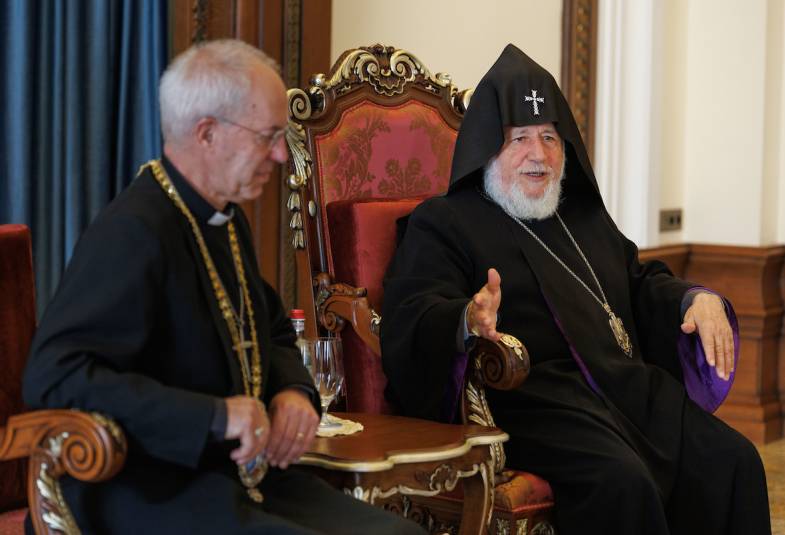
The Archbishop of Canterbury has begun a two-day visit to Armenia today (Thursday 5th October). He is meeting with Church leaders, senior government officials, NGOs as well as refugees who have recently fled Nagorno Karabakh.
Archbishop Justin Welby is on a five-day visit to the South Caucasus. On Monday he was in Azerbaijan, and then he went to Georgia. The regional visit ends tomorrow evening (Friday).
The Archbishop’s visit has been planned for a long time. He has called it a “pilgrimage of listening”, giving him an opportunity to learn how the Church of England and the wider Anglican Communion can support peacebuilding in the region.
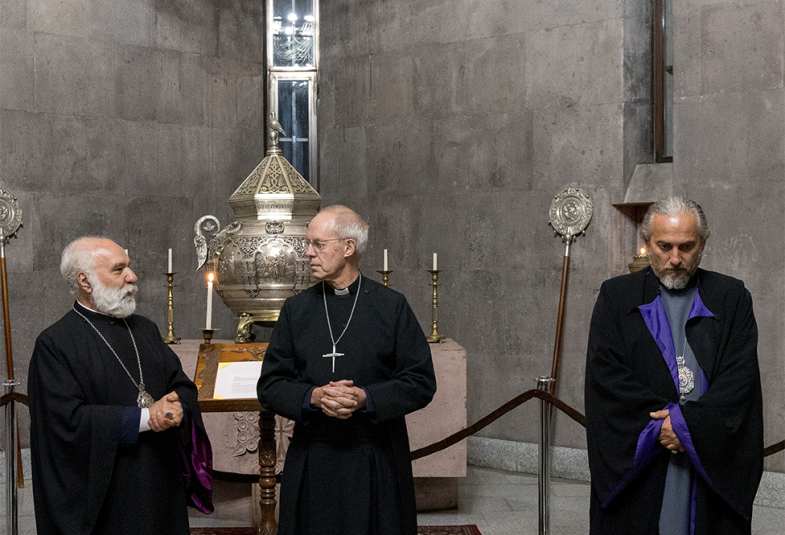
In Armenia today the Archbishop visited the Armenian Genocide Memorial, and met His Holiness Karekin II, Catholicos of All Armenians. In the meeting, the Archbishop of Canterbury said:
“Armenia was the first Christian kingdom. You were the first region to have the cross as your symbol. This is a symbol of weight, pain and struggle. Armenia has often carried the cross of pain and struggle. The last weeks have seen so many Armenians suffer deeply. I have been praying for you daily. I come here to say you are not forgotten.”
Tomorrow (Friday), the Archbishop is due to meet some of the 120,000 refugees who have recently left Nagorno Karabakh, as well as the Church projects giving those people displaced by conflict accommodation and other necessary support.
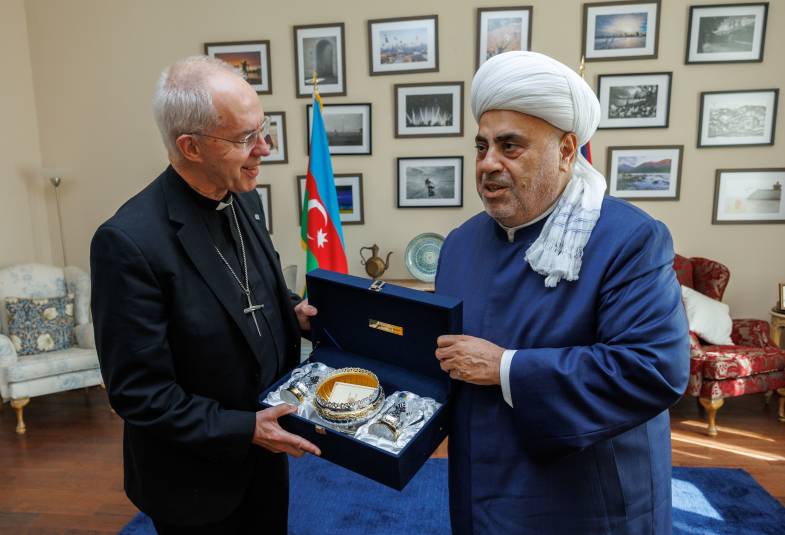
The Archbishop began his visit to the South Caucasus on Monday in Azerbaijan, the first time an Archbishop of Canterbury has visited the country. Archbishop Welby met political leaders, including the President of Azerbaijan, Ilham Aliyev. The Archbishop stressed the need to break the cycle of violence and urged the Azerbaijani government to take the first steps in the long journey of reconciliation by guaranteeing the rights and security of Armenian Karabakhs, as well as protecting their cultural and religious heritage. He also spoke of the need for the resumption of negotiations to secure a lasting settlement between Azerbaijan and Armenia that recognises the sovereignty and territorial integrity of both countries.
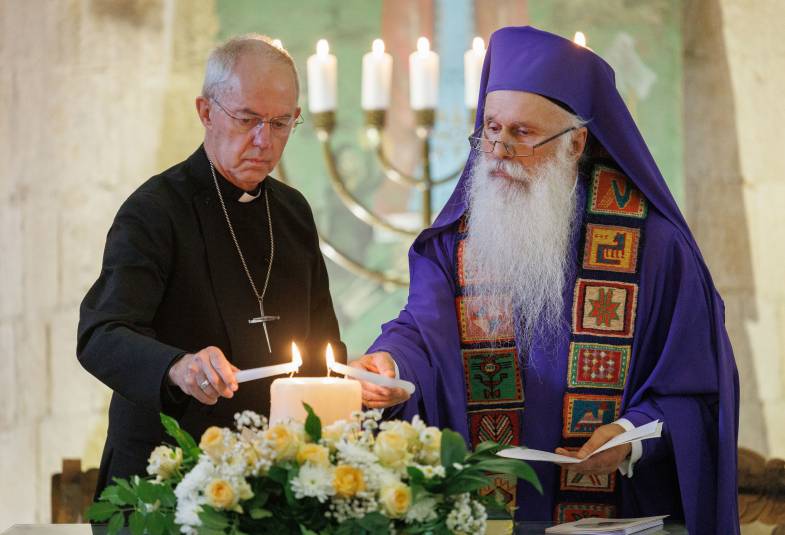
Whilst in Baku he also met Christian, Muslim and Jewish religious leaders.
On Tuesday (3rd October) Archbishop Welby visited Georgia and met with Prime Minister Irakli Garibashvili. He started the day in Tbilisi by going to the Peace Cathedral, a unique multi-faith space which includes an adjoining synagogue and mosque. There was a special Prayer for Ukraine and a refugee Ukrainian family presented him with a traditional wreath in yellow and blue. Later in the day he attended a prayer service with the congregation of St Nino Episcopal Church in Tbilisi, held at the Catholic Cathedral of the Assumption of The Virgin.
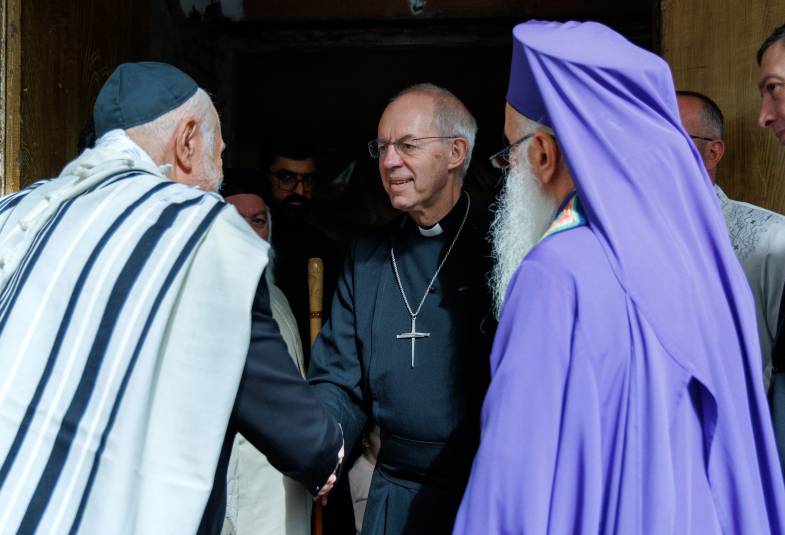
The Archbishop ended his visit to Georgia by accompanying the European Union Monitoring Mission to the Administrative Boundary Line between Georgia and South Ossetia, and driving to villages experiencing the impact of what’s called “borderization”. He heard how people don’t have access to family cemeteries and how housing, education and healthcare are very poor. He was also told how detentions, a loss of land and a lack of irrigation are the other concerns that people have there.
The Archbishop’s visit to the region concludes tomorrow.